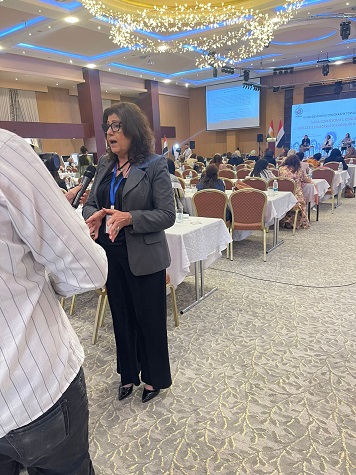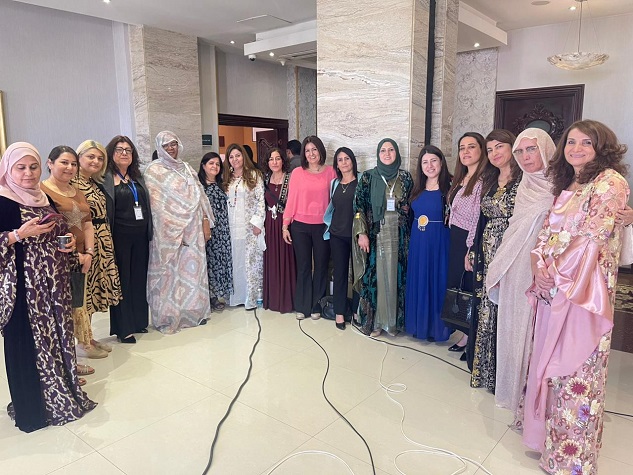In Sulaymaniyah, Women Leaders from the Region Unite at NADA Conference
SULAYMANIYAH, Kurdistan Region of Iraq— On the second day of the Regional Democratic Women’s Alliance Conference, known as the NADA Alliance, in Sulaymaniyah, Kurdistan Region of Iraq (KRI), female leaders from Syriac, Assyrian, and Chaldean communities emphasized the importance of unity and representation in the global women’s movement.
Ilham Matli, a member of the Syriac Women’s Union (Huyodo d’Neshe Suryoye b’Suriya, HNSS), and Sandra, a lawyer from Iraq’s Nineveh Plain and member of the Women’s Union, were among the key participants in the conference, which gathered women from across the Middle East — including Kurdish, Yazidi, Afghan, and Yemeni communities — to strategize around gender equality and advocacy.
“A Platform for Every Voice”
Speaking to SyriacPress, Matli underlined the need for global recognition of women’s voices from conflict-affected and minority regions. “We are here today to ensure every woman is represented — not just Syriac women, but women everywhere,” she said.
Matli highlighted several priorities set forth during the conference, including promoting women’s participation in global forums and combating systemic, non-physical forms of violence against women — particularly what she described as “intellectual suppression.”
“In today’s capitalist world, there is a deliberate effort to break women’s intellectual strength,” she said. “We must resist this by empowering women politically, economically, and socially.”
She cited the experience of the Democratic Autonomous Administration of the Region of North and East Syria (DAARNES) as an example of inclusive governance that protects women’s rights and promotes gender equality.

Challenging Harmful Narratives
Sandra, who also addressed the conference, called the NADA gathering “a bright new step” in supporting women’s rights across the region. She praised the event for bringing together women committed to justice, democracy, and equal rights.
Responding to a widespread notion that “a woman’s worst enemy is another woman,” Sandra disagreed. “Women are life-givers, they are peace, freedom, and security,” she said. “The issue isn’t women themselves — it’s the lack of access to education, culture, and critical thinking.”
Sandra urged broader efforts to invest in women’s intellectual and cultural development, which she sees as key to achieving lasting societal change.
A Shared Struggle, A Collective Voice
As the conference entered its final sessions, participants reflected on their shared struggles and the growing need for regional cooperation in advancing women’s rights. For many, including Matli and Sandra, the NADA conference marked a significant step toward building a transnational alliance of women determined to shape a more just and inclusive future.

















